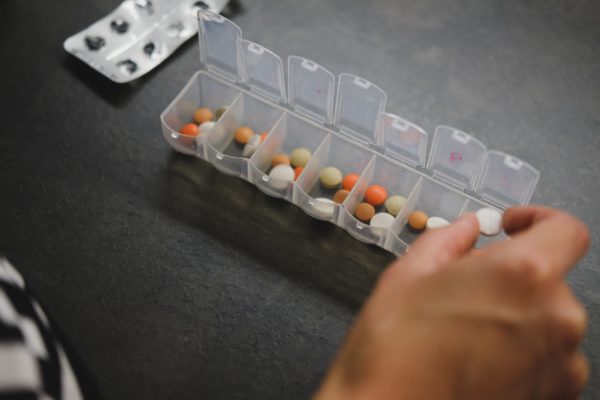“Drugs don’t work in patients who don’t take them.”
– C. Everett Koop, MD, US Surgeon General, 1985
In healthcare, it’s becoming a widely realized fact that what happens outside of the hospital is just as important as receiving treatment inside of it. Likewise, transportation is becoming recognized as an indispensable piece of healthcare access. Last year, the United States’ healthcare system paid a titanic $150 billion with 1.3 million people missing or delaying medical their medical appointments because they couldn’t find a way to get there. Where this barrier to care exists in one arena, let’s examine where it exists in another: the pharmacy.
According to U.S. Pharmacist, medication adherence is defined as the act of taking medication as prescribed by a physician, including consistently taking the proper dose, at the correct time, and for the recommended length of time. Where attending a medical appointment is key to better health outcomes, medication adherence has a more direct impact on the health of the patient.
The general state of medication adherence can be summed up in the following points:
- It is estimated that adherence to chronic medications is about 50% (link)
- 31% of people with a prescription never pick up their medication at the pharmacy (link)
- The estimated annual cost of drug-related morbidity and mortality resulting from non-optimized medication therapy is $528.4 billion. (link)
- Medication nonadherence accounts for 125,000 deaths every year. (link)
In a 2014 article about the effect of transportation barriers to healthcare access, five studies explored the relationship between transportation barriers and medication access.
- One study uncovered patterns of discharge medication fills in 84 adults living in urban Atlanta. 65% of patients felt transportation assistance would improve medication use after discharge.
- The second study examined the causes of 56 diabetic ketoacidoses [DKA] admissions at Grady Memorial Hospital in Atlanta:
- 67% of these admissions were related to stopping insulin. 50% of those patients cited either lack of money for insulin or for transportation to get their medicine.
- In an online survey conducted through epilepsy.com, 45% of 143 respondents said they would miss fewer doses of their medications if transportation were not a problem.
- A cohort study of 46,722 Medicaid patients found that restriction of Medicaid payments for transportation resulted in decreased medication refills.
- The last study found that transportation barriers were associated with not being able to afford medications, emphasizing that those with low incomes are often the hardest hit by all barriers, including transportation.
Consider the following journey map:

For people like Kelly, healthcare organizations will need to take a broader perspective when utilizing transportation for health-related purposes. We have previously written about how Whole Person Care initiatives can have an impact on health outcomes. Consider what Dr. Josh Morgan says about how transportation fits into Whole Person Care:
“Transportation is critical for access to care. Particularly for populations with fewer resources, lack of transportation can be a significant barrier to care. When we don’t recognize legitimate barriers, like transportation, we might write off missed or late appointment attendance as someone who is resistant or non-compliant to treatment when in fact, they can’t get care. It can fundamentally reshape how we engage with people.”
Therefore, health plans should use transportation as a benefit for their members to access a holistic range of resources that improve health and wellness outside of the clinical setting. Health systems should play a greater role partnering with pharmacies or enhancing their in-house pharmacy capabilities, to get patients the access to fill their prescriptions after discharge and when they need refills. All in all, when it comes to improving medication adherence, transportation is a solution that can help more people get their medications that will result in better outcomes.
